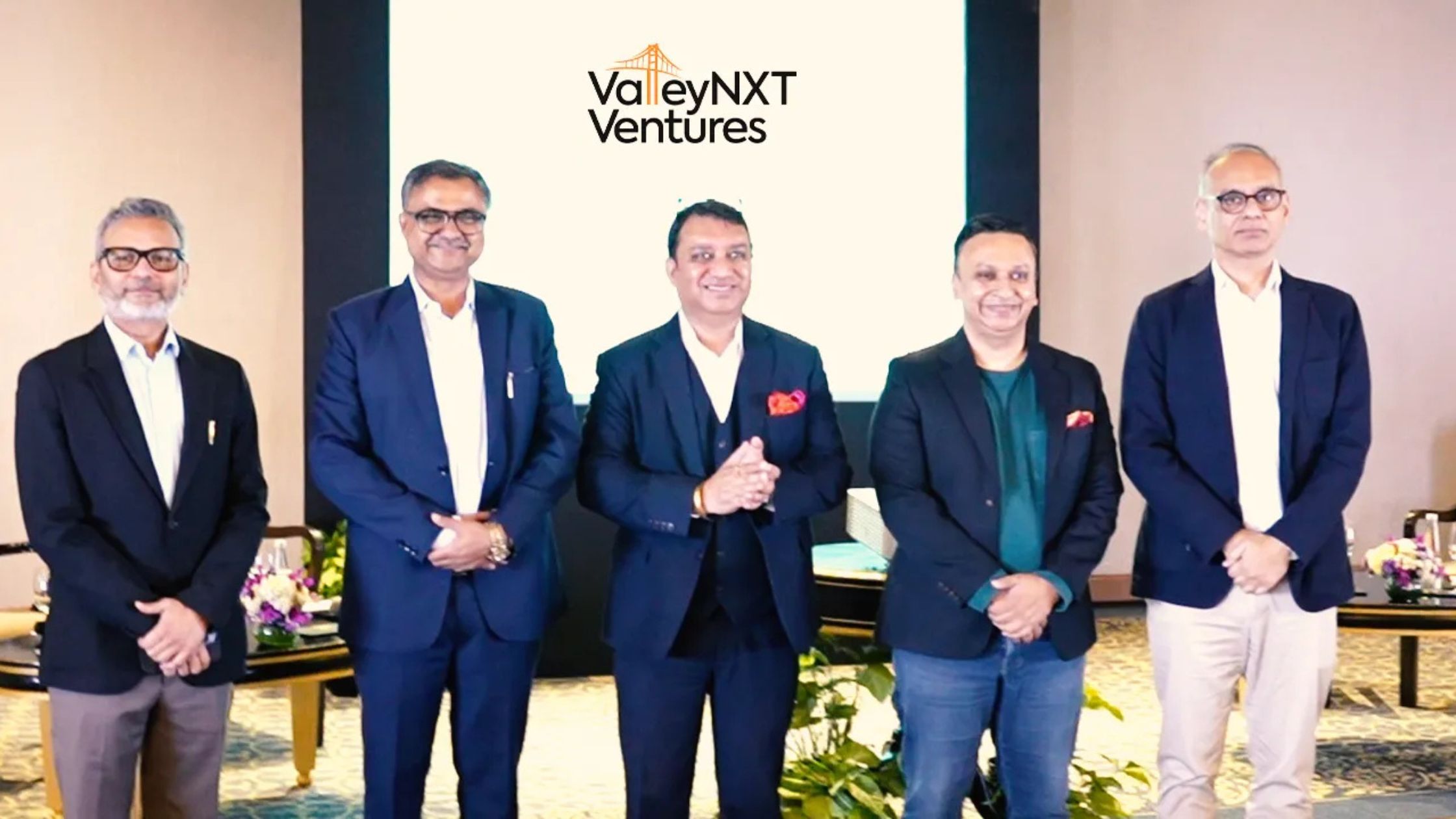AsiaTechDaily – Asia's Leading Tech and Startup Media Platform

Fixing the Hidden Layer of Banking: How Fyno Is Making Communication Secure and Compliant
In conversation with serial entrepreneur Aniketh Jain on why regulated industries like BFSI need a new communication layer — and how Fyno is building it.
For most businesses, sending notifications, alerts, and updates is routine. But for banks, fintechs, and other regulated enterprises, every message is a matter of compliance. A missed alert, a data leak, or a non-auditable trail can trigger real financial and reputational risks. As Asia’s financial sector digitizes at record speed, this invisible layer of communication infrastructure has become one of its biggest operational challenges.
That’s the problem Fyno, a Bengaluru-based startup, is tackling head-on. Founded in 2022, the company offers a smart communications middleware that gives enterprises complete visibility and control over their customer communication systems. Instead of relying on multiple external vendors for SMS, email, and push notifications, Fyno consolidates everything into one unified layer — ensuring every message meets compliance, security, and delivery standards.
The timing couldn’t be more relevant. Across Asia, regulators are tightening oversight on how financial institutions handle customer data and communication. At the same time, customers expect faster, more transparent interactions across multiple touchpoints. This dual pressure — compliance from the top, experience from the bottom — is forcing BFSI players to rethink their technology stack. In this environment, Fyno’s compliance-first communication orchestration has started to find strong traction.
Behind the company is Aniketh Jain, a name familiar to many in India’s startup ecosystem. A decade ago, he co-founded Solutions Infini, which later became Kaleyra, a global CPaaS provider that listed on the New York Stock Exchange. After that journey, Jain could have stepped back. Instead, he decided to start again — this time with a sharper focus on solving communication challenges for regulated enterprises.
In this conversation with AsiaTechDaily, Aniketh talks about the early lessons from his first venture, how Fyno won its first BFSI clients, and why compliance and orchestration are becoming strategic priorities for banks. He also shares insights on scaling responsibly, navigating regulations, and where AI fits into the next phase of enterprise communication.
You’ve been an entrepreneur for over a decade — from Solutions Infini to Kaleyra and now Fyno. What motivated you to start again with Fyno after an acquisition exit?
Entrepreneurship for me has always been about solving meaningful problems at scale. At Solutions Infini and later Kaleyra, we saw first-hand how enterprises struggled with fragmented communication systems that were often complex, vendor-driven, and not designed for reliability or compliance. Even after the acquisition exit, the gaps in communication orchestration — particularly around control, compliance, and visibility — remained unsolved. That realization was the spark for Fyno. We wanted to reimagine the space with a platform that puts enterprises in charge, simplifies orchestration, and embeds compliance and intelligence at the core. In many ways, Fyno is a continuation of the journey, but with a sharper focus on the needs of today’s digital-first enterprises.
What lessons from your first venture helped you build Fyno faster and smarter?
Every founder carries lessons from their first venture, and for me, those experiences became the blueprint for building Fyno faster and smarter.
At Solutions Infini and later Kaleyra, I saw firsthand how enterprises struggled with fragmented, vendor-led communication systems that weren’t built for compliance or visibility. We learned what it meant to operate at scale, manage reliability, and navigate enterprise-grade complexity. But we also saw where the industry fell short, especially in giving businesses true control and governance over their communication infrastructure.
When we started Fyno, we built with that clarity from day one. We avoided legacy bottlenecks, focused on making compliance an integral part of orchestration, and designed the platform to be agile, scalable, and transparent. We already knew what could break, so we built guardrails and automation where friction existed before.
The biggest difference this time is intent and precision. We are not just solving a problem; we are shaping how BFSI institutions think about communication control and compliance. That clarity, born from a decade of hands-on experience, helped us move faster, execute smarter, and stay sharply focused on impact.
Many founders struggle with “zero to one.” What was your strategy for acquiring your first few BFSI clients?
In the early days, we spoke to businesses across multiple sectors including e-commerce, logistics, healthcare, and fintech. What became clear very quickly was that the BFSI segment aligned most closely with what we were building. Banks and financial institutions operate at massive scale, under intense regulatory oversight, and with growing customer expectations for seamless and secure communication. However, the communication infrastructure they rely on has not evolved at the same pace.
This gap presented both a challenge and an opportunity. BFSI teams were struggling with fragmented systems, slow vendor processes, and compliance requirements that limited their ability to adapt quickly. Fyno’s vision of a unified, compliance-first communication infrastructure addressed these pain points directly.
Instead of trying to serve every industry, we decided to go deep within BFSI. We worked closely with early partners, understood their regulatory and operational realities, and built capabilities that made compliance, control, and reliability an inherent part of the platform. That focus helped us build trust faster and show clear results in efficiency, compliance, and customer experience.
What advice would you give to early-stage founders who are trying to navigate highly regulated industries like BFSI?
My biggest advice to early-stage founders building in regulated industries like BFSI is to start by understanding the landscape before you start building. Compliance cannot be an afterthought. The more deeply you understand the regulatory framework, the easier it becomes to design technology that not only meets requirements but can adapt as those requirements evolve.
In regulated industries, speed does not come from cutting corners. It comes from solving problems and building things purposefully. Founders should focus on creating systems that are flexible, auditable, and easy to govern. That discipline pays off when regulations change or when you scale across markets.
It’s also important to treat regulators and compliance teams as partners, not as roadblocks. When you engage early, you build trust and alignment that make growth much smoother later.
Finally, be patient and consistent. Building in regulated sectors is about earning credibility and trust over time. Once you get that right, scale follows naturally.
How is Fyno’s compliance-first approach resonating with banks and fintechs that have traditionally relied on CPaaS vendors?
Banks and fintechs have long relied on CPaaS vendors for their communication needs, but these solutions often prioritize volume over compliance, leaving enterprises exposed to risks such as data leakage, SLA breaches, and regulatory penalties. Fyno’s compliance-first approach directly addresses these gaps by giving institutions full visibility and control over their communication flows, while embedding regulatory adherence into the orchestration layer itself. This ensures that every interaction meets security standards, aligns with data residency requirements, and can be audited with ease — something traditional CPaaS platforms rarely offer out of the box.
This positioning has resonated strongly with financial institutions that operate under tight regulatory scrutiny and cannot afford lapses in communication governance. Instead of seeing compliance as a barrier, they now view it as a strategic advantage that safeguards customer trust and strengthens operational resilience. By combining compliance with real-time monitoring, AI-driven insights, and predictive risk alerts, Fyno enables banks and fintechs to modernize their communication infrastructure without compromising on security or regulatory obligations.
Do you think the BFSI sector in Asia is ahead or behind when it comes to adopting secure and compliant communication tech?
The BFSI sector in Asia is steadily advancing in its adoption of secure and compliant communication technologies, though the maturity level differs across markets. Financial hubs like Singapore, Hong Kong, and Japan are ahead of the curve, driven by robust regulatory oversight and early investments in cloud-native, compliant solutions. Meanwhile, emerging economies such as India, Indonesia, and Vietnam are catching up quickly, but their journey is shaped by evolving regulations, legacy infrastructure, and cost considerations. What’s clear across the region is a shared recognition that resilience, compliance, and customer trust are non-negotiable. At Fyno, we view this as a pivotal moment: enterprises are increasingly seeking platforms that not only streamline communication but also embed security and regulatory adherence at their core, making compliant orchestration a strategic driver of digital transformation.
With AI and agentic tech becoming mainstream, do you see AI playing a role in BFSI communication orchestration?
Fyno uses AI to help banks and enterprises deliver messages more reliably and efficiently. It monitors delivery rates, latency, and cost across channels to detect anomalies, traffic spikes, and teams get recommendations in real time.
Teams get AI-powered insights to reduce failure, reduce costs, avoid SLA breaches, and improve delivery success, without manual tracking. Fyno is also building predictive tools for SLA risk alerts and regulatory trend mapping, helping institutions stay ahead of issues before they impact customers.
India is your core market today. How are you approaching expansion across Asia — say Southeast Asia or the Middle East?
India has been the perfect starting point for us because it combines scale, regulatory depth, and innovation readiness. The complexity of the Indian BFSI ecosystem has helped us build a platform that can handle the toughest compliance and operational requirements. That foundation now positions us well to expand across other regulated markets in Asia.
Our approach to expansion is very deliberate. We are starting with regions that share similar regulatory and communication challenges, such as Southeast Asia and the Middle East, where financial institutions are also modernising rapidly but still rely on legacy communication infrastructure. These markets value compliance, reliability, and customer experience, which align perfectly with what Fyno delivers.
We are not expanding just for geographical presence. We are expanding where our product naturally fits. The approach we refined in India by combining deep local integration, regulatory alignment, and enterprise-grade reliability gives us a strong advantage as we grow internationally. Our goal is to work with forward-looking institutions that see communication as a strategic part of customer experience and trust.
As the interview makes clear, Fyno isn’t trying to disrupt communication — it’s trying to fix it. In a space dominated by volume-driven vendors, the company’s compliance-first model puts control back into the hands of enterprises that can’t afford uncertainty. By embedding visibility, governance, and automation into every message sent, Fyno is redefining what reliable communication means for regulated industries.
What stands out in Jain’s perspective is the discipline behind growth. He doesn’t talk about speed for the sake of scale but about scaling responsibly — a lesson drawn from years of building and running enterprise systems at global scale. For him, regulation isn’t a barrier to innovation; it’s the foundation that makes innovation sustainable. That’s why Fyno’s technology is designed as much for auditors as it is for developers.



